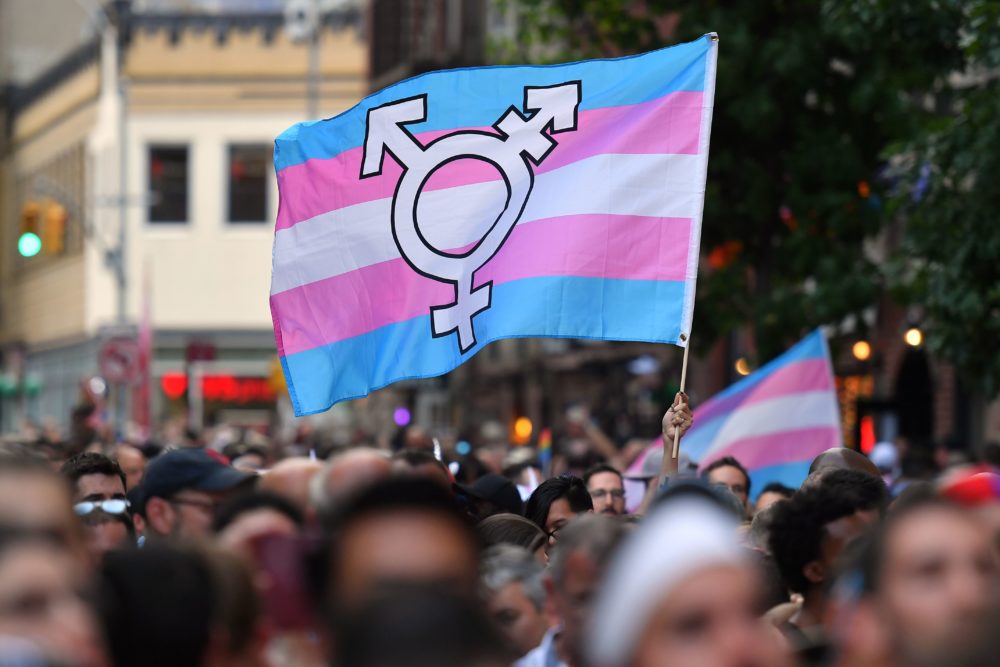Advertisement
Advocates Mourn An 'Epidemic' Of Violence Against Black Transgender Women
Resume
There's a dark cloud hanging over recent LGBTQ Pride celebrations: At least 11 black transgender women have been fatally shot or killed by other violent means so far in 2019, according to the Human Rights Campaign, which has labeled the trend an "epidemic."
Last year, LGBTQ civil rights advocates counted at least 26 transgender people killed violently in the U.S., the majority of whom were black transgender women.
Just last week in Kansas City, 32-year-old Brooklyn Lindsey — a black trans woman — was found dead from multiple gunshot wounds. Police ruled her death a homicide.
Two black trans women were killed over a three-month period in Fairmount Heights, a Washington, D.C., suburb. Police say Zoe Spears, 23, was shot and killed about four blocks away from where Ashanti Carmon, 27, was murdered in late March.
Mateo De La Torre, a racial and economic justice policy advocate at the National Center for Transgender Equality, tells Here & Now's Robin Young that violence is "a very common experience," particularly in the black trans community.
"For a fact we know that black transgender women are not exposed to violence because of anything inherent in their identity," De La Torre says. "It is the situation in the systemic structure that we've created in our society that limits their access to employment, that limits their access to housing, that limits their access to any form of opportunity, and more often than not, funnels people into survival work."
"Survival work" — including sex work and drug trade — can put trans women in risky situations or in frequent encounters with law enforcement, De La Torre says.
In a recent report, the National Center for Transgender Equality said it found "widespread failure" in 25 of the largest U.S. police departments to utilize policies that protect transgender people’s rights.
And according to the center's 2015 U.S. transgender survey, 58% of transgender people have experienced some form of harassment when interacting with law enforcement, while 1 in 3 black transgender women "had an officer assume they were engaged in sex work."
"We know that there's a lot of harassment and physical violence and sexual violence from law enforcement and from the criminal justice system in general towards transgender people," De La Torre says.
The lack of explicit nondiscrimination protections within federal law also poses a threat to the livelihood of trans people, he says, and enacting the Equality Act — an expansive LGBTQ rights bill that passed the House in May — would be a step in the right direction.
"The Equality Act would effectively grant nondiscrimination protections for transgender people based on gender identity, gender expression and sex characteristics, which are a lot of the different ways in which transgender people tend to experience this form of discrimination," he says. "It'll protect folks in housing, employment and in a whole host of other areas."
De La Torre says one area of protection would be for public accommodations such as bathrooms — spaces which are frequently cited by critics of the trans community.
In April, dozens of religious schools and institutions sent the House Judiciary Committee a letter opposing the Equality Act, writing that adding sexual orientation and gender identity protections to federal nondiscrimination laws would "undermine civil rights for women and girls by opening restrooms, locker rooms, and shower facilities."
"That's just a completely false argument," De La Torre says.
"There have been zero cases that I am aware of that a person would claim to be of a different gender in order to gain [restroom] access and commit a crime," he says.
Protections that the Equality Act would offer, he says, are ultimately about accessibility — and trans visibility.
"Transgender people have existed in every single space of society for the history of time," he says. "And it's just a matter of making sure that folks who are maybe more visible also get those privileges and access."
Chris Bentley produced this interview and edited it for broadcast with Kathleen McKenna. Serena McMahon adapted it for the web.
This segment aired on July 2, 2019.

